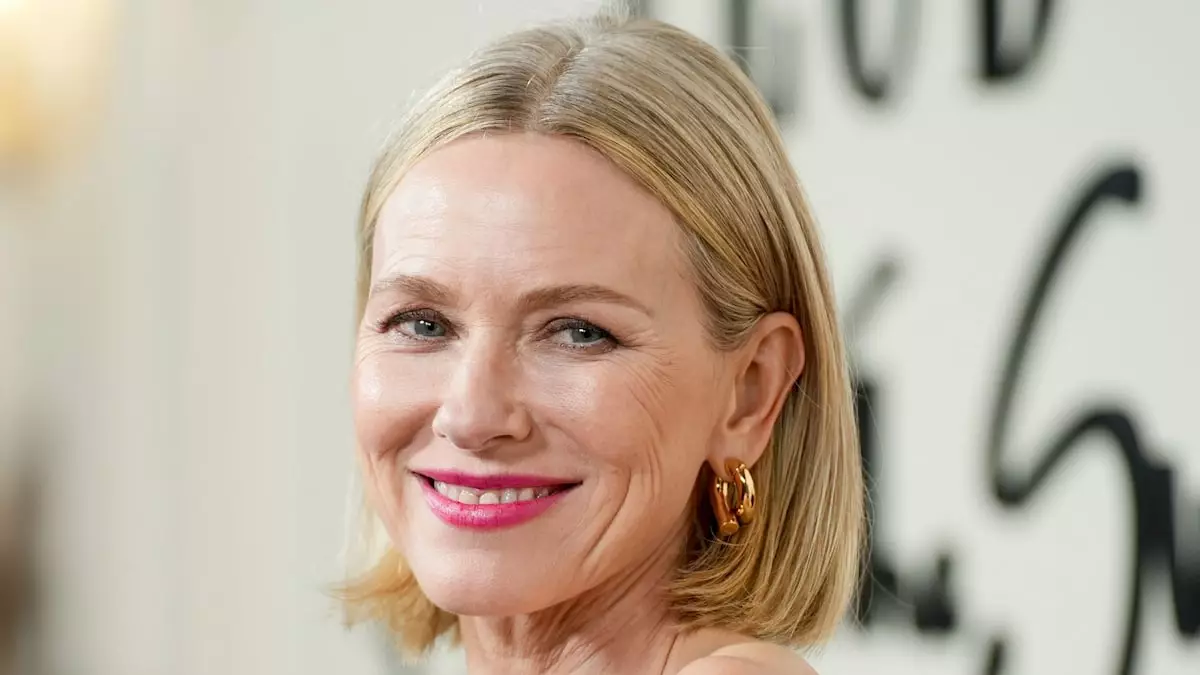Naomi Watts emerged as a beacon of empowerment during the recent New York City premiere of “The M Factor: Shredding the Silence on Menopause.” This groundbreaking documentary, produced by Tamsen Fadal—an advocate for menopause awareness—serves as a platform to amplify the voices of women navigating the often-overlooked transition of menopause. As Watts took center stage, her candid reflections on her own experiences with menopause resonated powerfully with an audience eager for honest dialogue.
The significance of this premiere extends beyond a star-studded affair; it represents a collective movement towards normalizing conversations around menopause, a topic historically shrouded in stigma and silence. Watts’ call for community solidarity—encouraging women to share their stories—highlights a fundamental truth: progress can only be made when individuals unite to advocate for better research, funding, and understanding of women’s health issues. “The community comes together and keeps sharing their stories,” she remarked, emphasizing the need for a concerted effort to impact societal perceptions and institutional support for menopause issues.
The Transformative Power of Authenticity
Watts discussed how her own transition through menopause has influenced her career in Hollywood, emphasizing the liberating impact of embracing authenticity. For many women, this phase of life can be transformative, prompting them to reevaluate their identities and priorities. Watts expressed that acknowledging her reality has been a form of empowerment, stating, “Leaning into the truth is always quite freeing.” This sentiment resonates with many women who often feel pressured to conceal their experiences in a society that often values youth over the wisdom that comes with age.
Furthermore, Watts’ success in co-founding Stripes Beauty, a beauty brand tailored to menopausal women, illustrates a proactive approach to celebrating this stage of life. By promoting a message of acceptance and self-love, Stripes Beauty aims not only to cater to menopausal women’s beauty needs but also to instill confidence in their identities during this pivotal time.
The documentary features the inspiring work of Tamsen Fadal, whose personal challenges with menopause ignited her passion for creating a film that highlights the stories of real women. Fadal’s experience of experiencing distress during a live broadcast without understanding what was happening to her reflects a broader issue—insufficient knowledge about menopause, even among healthcare professionals. “Even some doctors don’t get a month of OB-GYN training in medical school,” she shared, indicating the systemic gap in education surrounding women’s health.
Fadal’s journey underscores the urgency for a cultural shift in how society views menopause. With a staggering 1.1 billion women expected to experience menopause by 2025, her goal became clear: to create a documentary that sheds light on the diversity of experiences women undergo during this transition, advocating for increased awareness and education.
The event not only marked a milestone for Watts and Fadal but also signified a broader cultural shift in Hollywood regarding the discussion of menopause. As Dr. Sharon Malone, an OB/GYN and chief medical advisor at Alloy, pointed out, awareness and discourse around menopause have entered a new era. “This next generation of women is saying, ‘No, we’re not having it. We want solutions,’” she stated. The interest generated around the documentary illustrates a growing willingness among audiences to confront and engage with topics that were once taboo.
The evolving narrative surrounding menopause in media and film can pave the way for greater acceptance and understanding. Dr. Malone’s observation of the changing tides is significant; it reflects a collective realization that menopause is a universal experience affecting everyone, directly or indirectly.
The release of “The M Factor: Shredding the Silence on Menopause” not only serves as a vital resource for women but also calls for societal change in how menopause is perceived. Naomi Watts and Tamsen Fadal are at the forefront of this movement, advocating for women to reclaim their narratives and build a community that supports and informs. As the conversation continues to unfold, it is essential that both the entertainment industry and healthcare providers prioritize the discussion surrounding menopause, ensuring that future generations of women feel empowered and educated as they embark on their own journeys through this natural, yet often misunderstood, phase of life.

